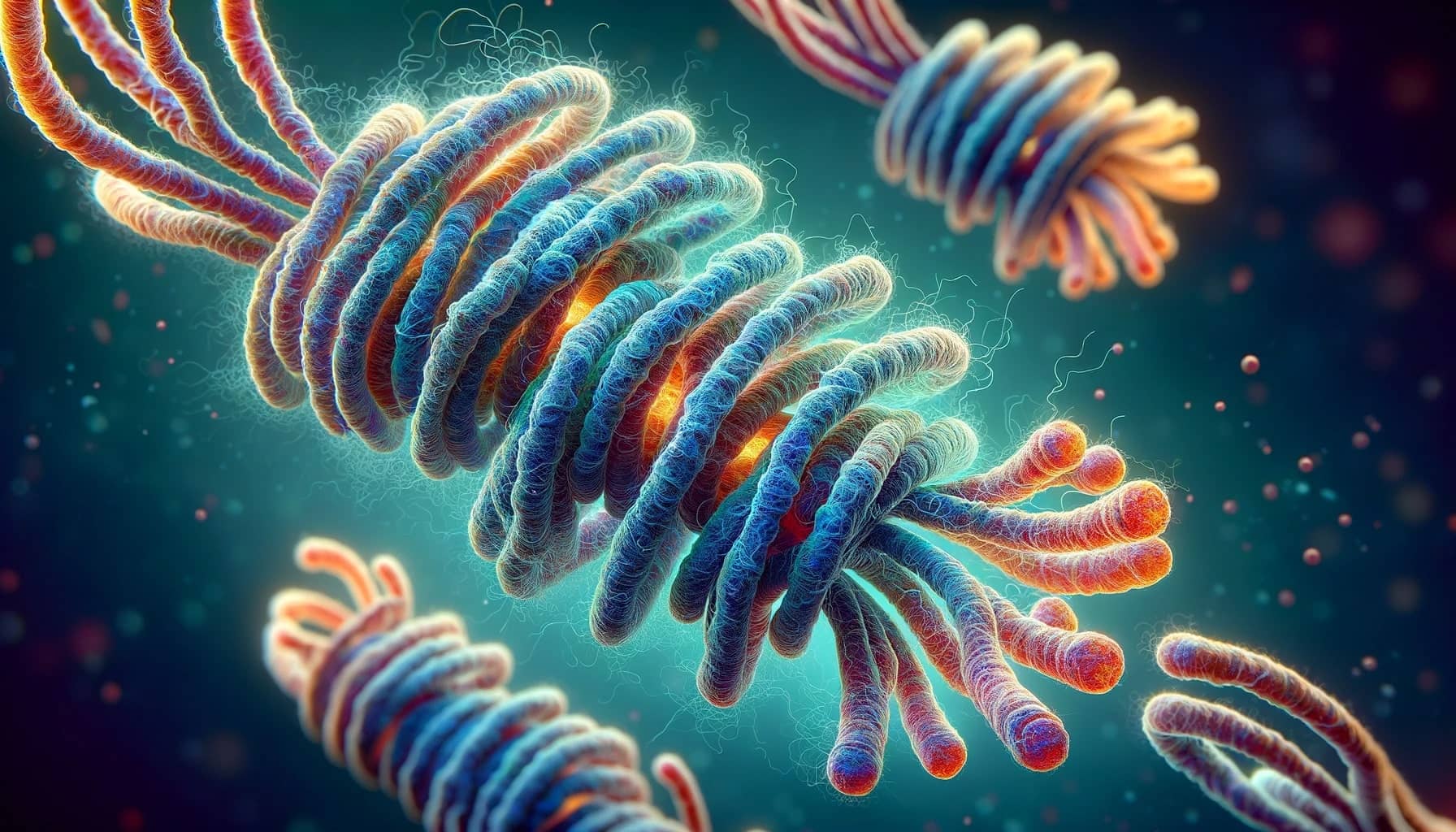
The Aging Clock: How Shortening Telomeres Affect Our Aging
Telomeres are like tiny caps at the ends of our chromosomes, acting like a clock for our cells. As we get older, these telomeres get shorter. This shortening, known as telomere attrition, is important in understanding why we age and why we get certain diseases as we grow older.
The Mechanism of Telomere Shortening
Here’s what happens: When our cells divide, the telomeres at the ends of our chromosomes can’t be copied completely. So, with each division, they get a bit shorter. When they become too short, cells either die or stop working properly. This shortening is a big reason why our bodies change as we age.
Telomerase and Its Role in Telomere Lengthening
There is an enzyme called telomerase that can make telomeres longer, sort of like fixing the ends. But most of our cells don’t make enough of this enzyme, so over time, the telomeres keep getting shorter. Short telomeres help stop cancer cells from growing without end, but they also contribute to aging.
Real-World Impacts of Short Telomeres
Short telomeres are not just theory; they have real effects. People with not enough telomerase can get diseases early on that make it hard for their bodies to heal and make new cells, like pulmonary fibrosis and aplastic anemia. Lots of things affect how fast telomeres shorten, including how old we are, our genes, our lifestyle, and even things like stress.
The Role of Shelterin Proteins
There’s more to the story, too. Proteins called shelterins help keep telomeres in good shape. If we don’t have enough of these proteins, we can age faster and have a harder time making new cells, even if our telomeres are okay.
Insights from Animal Studies
Studies with animals have been really helpful. Mice with longer or shorter telomeres show us that telomere length can affect how long they live. And, interestingly, turning on telomerase in mice that don’t have it can make them healthier and reverse aging signs. This gives us clues that maybe we can do something about aging by focusing on telomeres.
Telomeres and Age-Related Diseases in Humans
In humans, short telomeres are linked to age-related diseases. For example, studies with mice that have short telomeres help us understand how this might lead to problems like lung and kidney diseases as we age. New treatments, like gene therapy to activate telomerase, are being tested to see if they can help with these diseases in mice..
Conclusion: The Future of Telomere Research
In conclusion, telomere shortening is a key part of why we age and why we get certain diseases as we get older. By learning more about this and how to control it, we might find new ways to live longer, healthier lives.
